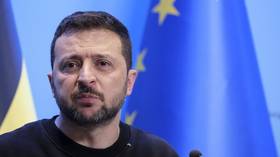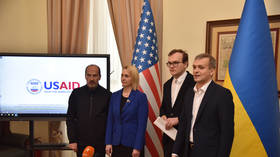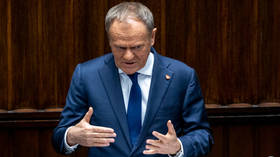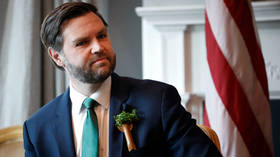European Commission approves EU membership talks for Ukraine

Ukraine has completed reforms on corruption and democratic freedoms and is ready for formal accession talks, the EU’s executive body told member states on Friday.
The EU granted Ukraine candidate status two years ago as a gesture of support against Russia, months after it applied for membership. The European Commission has informed the 27 countries of the bloc that Kiev has done enough to proceed to formal talks. “Now the decision is in the hands of the member states,” the body’s spokesperson said.
The move was predicted earlier in the day by Financial Times, which was tipped off by three insider sources. The decision to move forward needs to be approved unanimously and is likely to be opposed by Hungary due to what it perceives as mistreatment of ethnic minorities in Ukraine, the report said.
Budapest, which is set to assume the rotating presidency of the EU in July, has accused the government in Kiev of suppressing Hungarian culture using laws that promote the Ukrainian language in media, education, and other spheres of public life. One of the FT sources said Hungary could also raise concerns about the status of other minorities.
The Ukrainian measures are mainly directed against Russian, which historically has been spoken by most of the country’s population as a first or second language. Taras Kremin, Kiev’s state language protection commissioner, has claimed in interviews that the term “Russian-speaking” is “a marker introduced by Russian ideology.”
Corruption, which has long been an endemic problem in Ukraine, is reportedly one of the issues souring relations with the US, its leading foreign backer. NBC News reported on Thursday that Ukrainian officials “are particularly irritated with the US ambassador, Bridget Brink” over her attention to the issue. She is causing “unnecessary tensions” by pressing for more reforms, they told the US news outlet.
Moldova, another EU applicant fast-tracked by Brussels amid the conflict with Russia, was also certified on Friday as ready for formal negotiations. The previous step forward by the two candidate states took place last December. At the time, Hungarian Prime Minister Viktor Orban agreed to leave the room so that other EU leaders could vote for the decision unanimously in his absence.














